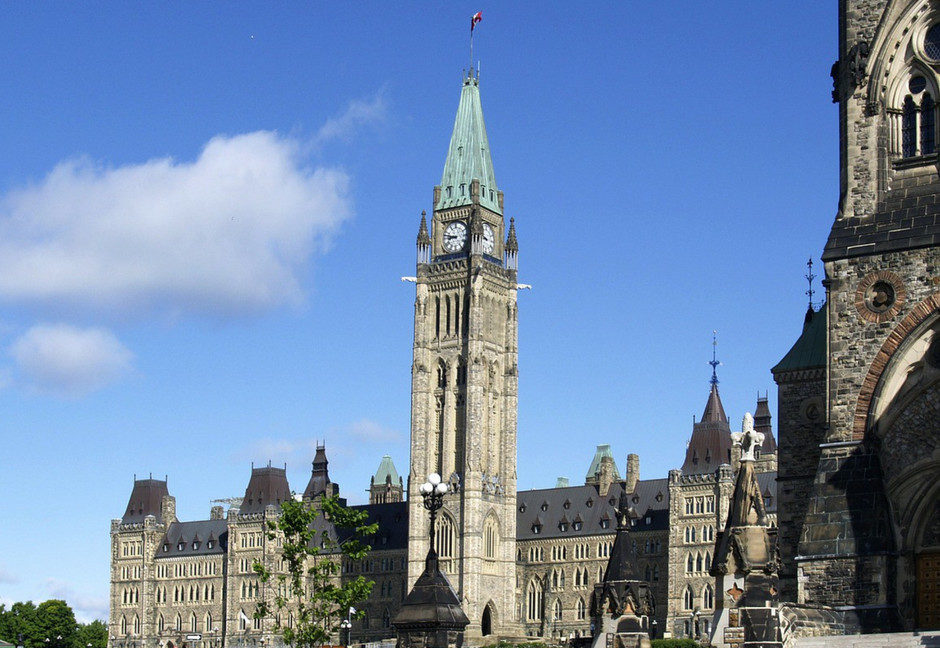One of the most striking features of the 2021 federal budget —the first tabled in the COVID-19 era— was what it didn’t include. While it did contain some highly-targeted tax increases, it spared Canadians from any change to personal or corporate taxes or to the capital gains exemption rate, as some finance insiders had warned. Also, there were no significant efforts to cool Canada’s red hot housing market through measures such as a tax on the sale of primary residences.
Instead, the 2021 federal budget delivered more eye-watering deficits—projected at $354.2 billion for 2020-21—and forecasts of a national debt that will reach 51.2 per cent of GDP this year. It also gave us a tightening of corporate tax rules and enormous program spending to support the economy through what we hope will be the final leg of the coronavirus pandemic—not to mention an ambitious new multi-year commitment that could transform early childcare in this country.
In short, the budget is likely to have only a marginal impact on the financial wellness of most Canadians and their families, including professionals and small to medium-sized business owners. This should come as no major surprise if we assume that a federal election is looming on the horizon, perhaps in the fall as the worst of the pandemic subsides. Simply put, few governments would risk valuable political capital to rebalance the books, namely by increasing or introducing new taxes, before going to the polls. The next government will likely take significant action to restore fiscal stability by reducing deficits and the federal debt. Budget 2022 or 2023 could be the one where Canadians are asked to pay the piper.
In the meantime, the federal budget does include a raft of new spending and tax measure. Here are five worth noting:
COVID-19 relief extended
Business owners will be pleased that Ottawa is proposing to extend the Canada Emergency Wage Subsidy, the Canada Emergency Rent Subsidy and Lockdown Support relief measures until September, 2021, while reserving the right to extend the programs until November based on progress in containing COVID-19 and restoring economic growth.
The government is also proposing a new relief measure called the Canada Recovery Hiring Program, which would run from June through November, 2021. The initiative is designed to encourage employers to hire or rehire staff as quickly as possible, transitioning them from the Canada Emergency Wage Subsidy to this program with a subsidy of as much as 50 per cent of salaries paid to eligible employees from the period between June 6, 2021 and November 20, 2021. Eligible employers (which would include individuals, non-profits, registered charities, some partnerships and Canadian-controlled private corporations) will be required to demonstrate a decline in revenue of more than 0 per cent for the qualifying period between June 6, 2021 and July 3, 2021, or more than 10 per cent for the qualifying period between July 4, 2021 and November 20, 2021. Employers would not be permitted to claim both the CEWS and CRHP in the same qualifying period.
$10-a-day childcare
One of the most sweeping proposals in the 2021 federal budget is a $30 billion investment over five years in a national childcare program. If implemented, the plan would reduce childcare costs for most Canadians to an average of just $10 per day per child within a half decade. That would be a welcome change for both low- and higher-income earners alike in major cities such as Toronto and Vancouver, where daycare costs can rival or even exceed monthly rent or mortgage payments.
Taxing luxury items and foreign real estate
Buying a yacht, a personal aircraft or a luxury vehicle is about to get more expensive. The government is proposing a new tax on cars and personal aircraft priced at more than $100,000, along with a levy on personal-use boats with a price tag of more than $250,000. The mainly high net-worth Canadians who could afford to spend on these items will pay the lesser of 20 per cent of the item’s value above the threshold (e.g., $100,000 for cars, $250,000 for boats), or 10 per cent of the full value of the item, beginning January 1, 2022.
The federal Liberals are also proposing a new 1 per cent tax on non-resident, non-Canadian owned residential properties that are unoccupied or deemed to be under-utilized. The largely optics-driven measure will probably do little to lower skyrocketing real estate prices across the country.
More powers for CRA
The 2021 federal budget would provide an additional $304.1 million over five years to the Canada Revenue Agency to enhance its audit capacity, to curb GST/HST fraud and identify fraud relating to trusts, among other priorities. The aim is to not only enhance collection of outstanding tax debts, but to curb tax avoidance measures and limit aggressive tax planning such as the use of non-arm’s length entities as a tool to mitigate tax liabilities. The government’s message is clear: anyone attempting to short-change the federal treasury will face greater risk of being caught in the months and years ahead.
New giving quotas may be coming
The budget promises to consult with charities on a proposal to increase minimum annual disbursement quotas, currently set at 3.5 per cent of the average value of a charity’s property, not including funds used for administration. According to the budget, ‘… a gap of at least $1 billion in charitable expenditures in our communities exists today. Furthermore, growth in the investment assets of foundations has increased significantly in recent years. In 2019, charitable foundations held over $85 billion in long-term investments. But grant-making and other charitable activities have not kept pace.’ Individuals and families with private or family foundations could well be forced to donate more of the assets invested long-term in those foundations, while the budget also ambiguously proposes to update ‘… the tools at the Canada Revenue Agency’s disposal, beginning in 2022.’ Translation: expect tighter oversight of charitable foundation activities and, potentially, greater audit activity on the part of CRA.
For a complete overview of the proposed federal budget, including a summary of tax measures, we recommend reviewing EY Canada’s budget highlight package. If you have questions about the 2021 federal budget or any aspect of your group benefits, corporate or personal insurance or wealth and financial planning needs, please contact a member of our team.
The Bridgewell Team






